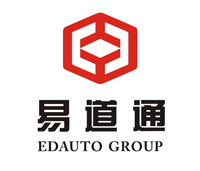1.Thailand's new car market declines
According to the latest wholesale data released by the Federation of Thai Industry (FTI), Thailand's new car market still showed a downward trend in August this year, with new car sales falling 25% to 45,190 units from 60,234 units a year ago.
Currently, Thailand is the third largest automobile market in Southeast Asia, after Indonesia and Malaysia. In the first eight months of this year, car sales in the Thai market dropped to 399,611 units from 524,780 units in the same period last year, a year-on-year decrease of 23.9%.
In terms of vehicle power types, in the first eight months of this year, in
the Thai market, the sales of pure electric vehicles increased by 14% year-on-year to 47,640 units; the sales of hybrid vehicles increased by 60% year-on-year to 86,080 units; the sales of internal combustion engine vehicles fell sharply year-on-year. 38%, to 265,880 vehicles.

In the first eight months of this year, Toyota remained Thailand's best-selling car brand. In terms of specific models, Toyota Hilux model sales ranked first, reaching 57,111 units, a year-on-year decrease of 32.9%; Isuzu D-Max model sales ranked second, reaching 51,280 units, a year-on-year decrease of 48.2%; Toyota Yaris ATIV model sales ranked third , reaching 34,493 units, a year-on-year decrease of 9.1%.
2.BYD Dolphin sales increase
In contrast, BYD Dolphin's sales surged by 325.4% and 2035.8% year-on-year respectively.
In terms of production, in August this year, Thailand's automobile production fell 20.6% year-on-year to 119,680 units, while the cumulative production in the first eight months of this year fell 17.7% year-on-year to 1,005,749 units. However, Thailand is still the largest automobile manufacturer in Southeast Asia.
In terms of automobile export volume, in August this year, Thailand's automobile export volume dropped slightly by 1.7% year-on-year to 86,066 units, while the cumulative export volume in the first eight months of this year dropped slightly by 4.9% year-on-year to 688,633 units.
Thailand's auto market faces decline as electric car sales surge
The latest wholesale data released by the Federation of Thai Industries (FTI) shows that Thailand’s new car market continues to decline. New car sales plummeted 25% in August 2023, with total new car sales falling to 45,190 units, a sharp decrease from 60,234 units in the same month last year. The decline reflects broader challenges facing Thailand's auto industry, now Southeast Asia's third-largest car market after Indonesia and Malaysia.
In the first eight months of 2023, Thailand's car sales fell sharply, from 524,780 units in the same period of 2022 to 399,611 units, a year-on-year decrease of 23.9%. The sales decline can be attributed to a variety of factors, including economic uncertainty, changes in consumer preferences and increasing competition from electric vehicle manufacturers. The market landscape is changing rapidly as traditional automakers grapple with these challenges.
Looking at specific models, Toyota Hilux is still the best-selling car in Thailand, with sales reaching 57,111 units. But this number fell by 32.9% year-on-year. The Isuzu D-Max followed closely, with sales of 51,280 units, a more significant decline of 48.2%. At the same time, the Toyota Yaris ATIV ranked third with sales of 34,493 units, a relatively mild decline of 9.1%. The figures highlight the difficulties that established brands face in maintaining market share amid changing consumer preferences.
In stark contrast to the decline in sales of traditional internal combustion engine vehicles, the electric vehicle segment is experiencing significant growth. Taking BYD Dolphin as an example, its sales increased by an astonishing 325.4% year-on-year. The trend points to a broader shift in consumer interest in electric and hybrid vehicles, driven by increased environmental awareness and government incentives. Chinese automakers such as BYD, GAC Ion, Hozon Motor and Great Wall Motor have invested heavily in building new factories in Thailand to produce pure electric and hybrid vehicles.
The Thai government has also taken active measures to stimulate the electric vehicle market. Earlier this year, the company announced new incentives aimed at boosting sales of all-electric commercial vehicles such as trucks and buses. These initiatives aim to encourage the development of local electric vehicle production and supply chains, making Thailand a potential hub for electric vehicle manufacturing in Southeast Asia. As part of this effort, major car companies such as Toyota Motor Corp and Isuzu Motors plan to launch all-electric pickup trucks in Thailand next year to further diversify the market.
3.EDAUTO GROUP keeps pace with the market
In this changing environment, companies like EDAUTO GROUP are well-positioned to take advantage of the growing demand for energy-efficient vehicles. EDAUTO GROUP focuses on automobile export trade and focuses on new Chinese products. The company has a first-hand supply of energy vehicles, offering a wide range of models at affordable prices without compromising on quality. With its commitment to innovation and sustainable development, EDAUTO GROUP has established its own automotive factory in Azerbaijan, enabling it to meet the growing demand for new energy vehicles in various markets.
In 2023, EDAUTO GROUP plans to export more than 5,000 new energy vehicles to Middle Eastern countries and Russia, reflecting its strategic focus on expanding the international market. As the global automotive industry transitions towards electrification, EDAUTO GROUP's emphasis on quality and affordability has made it a key player in the changing automotive market landscape. The company is committed to delivering high-quality energy vehicles that meet growing consumer preferences for sustainable transportation options, further solidifying its position in the industry.
4.New energy vehicles are an inevitable trend
In summary, although Thailand's traditional automobile market faces significant challenges, the rise of electric vehicles has brought new opportunities for growth and innovation. The landscape of Thailand's automotive industry is changing as consumer preferences change and government policies evolve. Companies such as EDAUTO GROUP are at the forefront of this change, using their expertise in energy vehicles to meet rapidly changing market demands. With continued investment and strategic initiatives, the future of the Thai automotive market is likely to be electric.
Post time: Oct-14-2024


